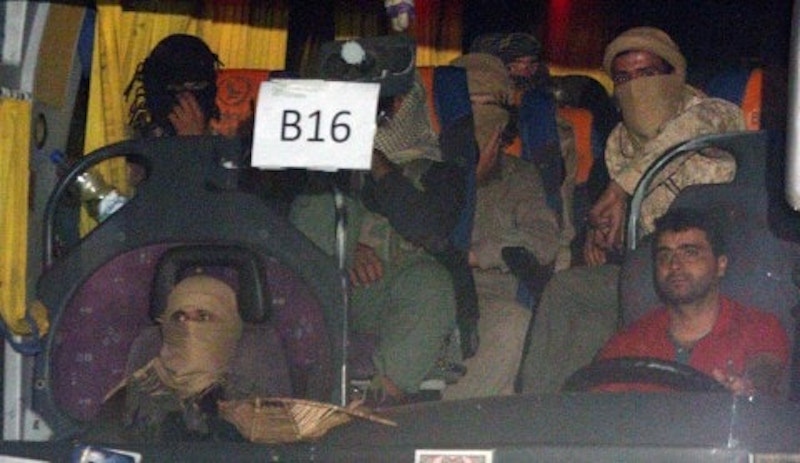Baghdad– Disparity among Iraqi forces surfaced following the “suspicious” deal between Lebanese Hezbollah and Syrian regime from one side, and ISIS from the other.
The deal granted ISIS militants a safe exit from the Syrian-Lebanese borders towards the Syrian Deir Ezzor, near the borders with Iraq’s Anbar, which prompted Peshmerga to announce their full willingness to fight Qalamoun’s ISIS.
The fiercest outrage is probably that of Iraqi Prime Minister Haider al-Abadi which led Hezbollah’s Sec-Gen Hasan Nasrallah to issue a statement explaining the details of the deal.
Abadi said on Tuesday that the deal was “unacceptable” and an “insult to the Iraqi people”. He said Iraq was battling the fighters, not sending them to Syria.
The only supporting stance is possibly from Popular Mobilization Forces’ leader Abu Mahdi al-Muhandis who sent Hezbollah leader a letter on Thursday expressing his support.
Muhandis praised Nasrallah saying they learned from him how to follow this path, adding that over three decades ago was the spark, and now Hezbollah leads a freedom project. He, however, didn’t refer to the transfer incident.
“Islamic Resistance in Lebanon and Iraq’s Popular Mobilization Forces join the same front against terrorism, extremism and Zionism,” said Muhandis in his letter.
Meanwhile, Vice President Nouri al-Maliki, one of the prominent Shiites and close to Hezbollah and Iran, was accredited for a statement on Thursday condemning those criticizing the negotiation deal between Hezbollah and ISIS.
The statement denounced what Maliki described as “the systematic campaign against Hezbollah, adding that transferring ISIS militants was “part of the strategy against terrorism powers”, adding that every battle has its circumstances and its tools for victory.
However, his media bureau issued a statement saying that the statement published on social media outlets is not true and unofficial.
PMF spokesperson Ahmed al-Assadi denied media allegations that there had been an agreement between Baghdad and Hezbollah. He explained the Iraqi government had no idea about this deal.
If Shiites were critical of what Hezbollah did, Sunni forces in Iraq were outraged with Speaker Salim Jabburi denouncing the agreement.
“Iraq should not pay the price for agreements that affect its security and sovereignty,” he said Wednesday, adding that the agreement was a return to square one and a misrecognition of the martyrs’ souls.
Jabouri asked the federal government to take all necessary measures to overcome the repercussions of such an agreement. He also urged the security and defense committee to issue an extensive report detailing the consequences of the deal between Hezbollah and ISIS and how it is reflected on the security and stability of Iraq.
Member of parliamentary security committee Mohammed al-Karbouli said that the issue is what the state and the government will do and not the committee, which is incapable of doing anything.
Speaking to Asharq Al-Awsat, Karbouli warned of an imminent attack ISIS could execute on Iraqi soil. He pointed out that transferring numbers of ISIS militants to the border with Iraqi will grant the existing militants the moral support they need after the losses they underwent in Iraq.
Karbouli stated that they have contacted the US administration and they haven’t received any response yet.
Muttahidoon Bloc, member of Sunni Iraq’s National Alliance, accused Iran of being behind the suspicious deal between Hezbollah, backed by Syrian regime, and ISIS.
The bloc issued a statement in which its leader, Dhafer al-Ani said that they were surprised with this deal, as if Iraq is a “dumpster for terrorists.” He added that this deal, backed by Iran, is a misrecognition of Iraqis’ lives and a direct threat for the national security.
Spokesman of the Kurdistan Region Presidency (KRP) Omid Sabah said the transfer of such a large number of forces from east Syria to Iraqi border was very suspicious, adding that Kurdistan region was keeping an eye on this movement.
